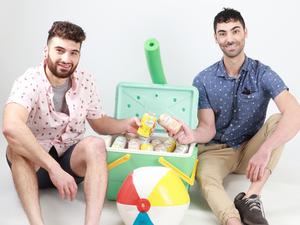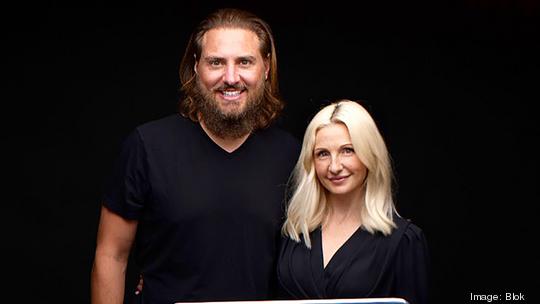
A little more than a year after closing its first funding round, a Main Line-based smart cutting board brand has launched manufacturing to fulfill its first orders and will soon undertake an additional $1.5 million fundraise.
Blok is the brainchild of husband and wife Tony and Alissa Frick, who created the concept during the early days of the Covid-19 pandemic. Self-described burgeoning foodies at the time, Tony – a lawyer by trade, who today is the CEO of Wayne-based wellness technology firm Husk – said when restaurants shut down in 2020, he began to take an interest in cooking.
With travel and physical contact limited, they wanted to share their at-home cooking experiences with friends and family, whether down the street or across the country. As they tried to simultaneously prepare recipes, they became frustrated by the experience of coordinating with one another and moving around devices.
They wanted a streamlined, synchronous process in a reasonable amount of time.
When they couldn’t find it, they dreamed up Blok. The smart cutting board consists of a large, removable wood cutting board made of dark walnut, which sits in a docking station. The Wi-Fi-connected and Bluetooth-enabled docking station contains a screen, camera, speakers and microphone which allow groups to cook together in real time.
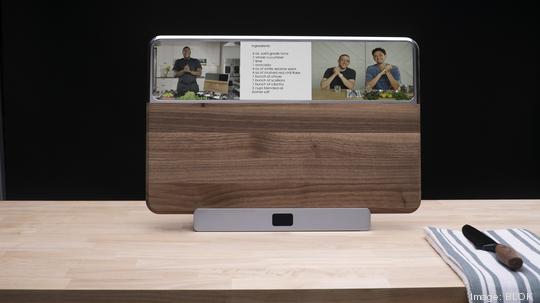
The couple – Alissa is a vice president at Fox29 – spent the past year testing Blok, ensuring it would stand up to the rigors they expect users to put it through. “It's a cutting board. It needs to be durable,” Tony said.
With that finalized, they launched manufacturing in October with the goal of delivering their first 100 units within six months. That translates into about $30,000 worth of products sold, Tony said.
That six months is a timeline they’re looking to vastly shorten as they ramp up. To do so, they’re seeking fresh funding. The company so far has raised about $526,000 – $500,000 from investors including local private equity magnate Ira Lubert, and just over $26,000 from a Kickstarter campaign.
Existing investors have already expressed interest in the round, which will formally launch in January. Tony added that they’re also seeking “some institutional dollars,” specifically from those with experience in “home or kitchen appliances, consumer goods, even folks that have supported the scaling of digital fitness products that were hardware first.”
They’re looking to raise an additional $1.5 million, which will go to scaling manufacturing so they can start holding inventory and producing cooking classes.
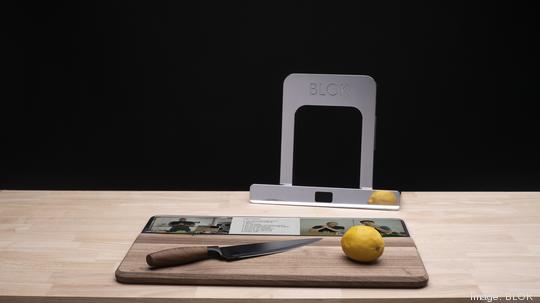
Those cooking classes will be the heart of Blok. Frick likens their chef-driven model to smart fitness brands like Peloton or Tonal, which will allow its community of users to tap into live classes as well as on-demand offerings, cooking alongside their favorite chefs. Already the company has teamed up with Philadelphia Chef Elijah Milligan of Greenwood Social Club. It also has teamed up with Chef Declan Horgan, who appeared on popular Fox reality series “Hell’s Kitchen.”
Chefs with a following like that are the target for Blok and the company expect they will drive business growth, tapping into their respective fan bases and giving them experiences they can’t access elsewhere.
“Every metropolitan area that you go into, every small town, the quality of restaurant is exceptional. What we're hoping to do is enable folks to engage with those type of chefs and that food, even when they're separated by geography,” Tony said.
They’re looking at chefs who are “right at the precipice of becoming a household name,” he said, adding that they’re targeting chefs from all over the U.S. who specialize in varied cuisines.
To attract chefs, Blok is considering different compensation models which range from ones based on their time and the success of a class, to “that plus equity stakes in the business,” Tony said.
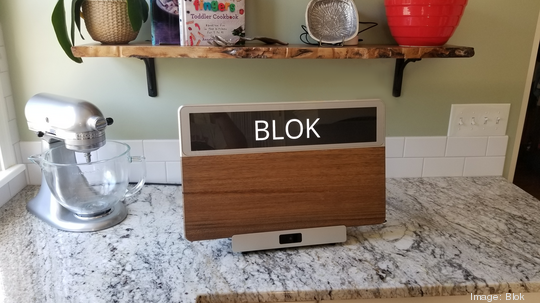
He expects there to be around 50 on-demand classes when the first consumers get Blok in hand, with new offerings being added regularly.
Blok consumers so far, they’ve founded, are the “the same folks that are going to a [Michael] Schulson restaurant, they're the same folks that are going to a Stephen Starr restaurant but they're not eating out seven days a week so their goal then in those other handful of days is, let me make a restaurant quality meal in hopefully 30 to 60 minutes, have the fun and engage with my friends,” Tony said.
As with the digital fitness space, he anticipates Blok will complement, rather than supplant, prior consumer behaviors, and that the Pelotons and Tonals of the world have helped ease uptake for a concept like this.
A future goal includes getting Blok into retail spaces and the brand has already had interest from large kitchen appliance manufacturers, as well as companies in the health and wellness space.
Blok currently retails for $699 and subscriptions are available monthly for $39 and annually for $390.


